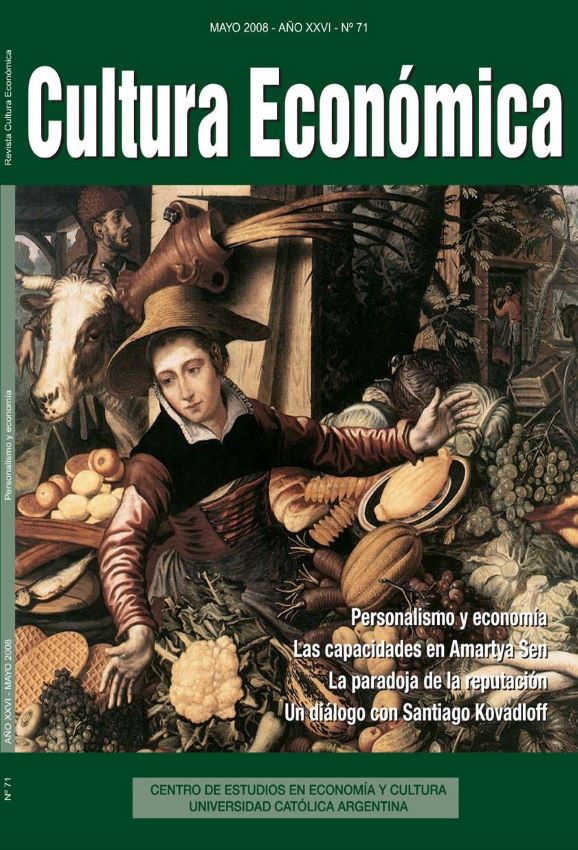The power of conviction
Keywords:
formal limitations, informal limitations, incentive mechanism, moralityAbstract
In this article, Pablo Grigoriu, PhD candidate in Economics at our University, criticizes some key points of the neoclassical model in economics. Opposing the “homo economicus” of the neoclassical rationality to the “human being” of personalism, the author considers the place of moral values and the objective dimension of man in the traditional econometric schemes. After an epistemological rupture between Economics and culture in economic thought, economists have focused solely on the subjective dimension of the person, considering only the utility. However, there are factors such as the moral conviction that have an important role in economic decisions and are not adaptable to a conventional instrumental rationality.
Downloads
References
Becker, G. S. (1978) The Economic Approach to Human Behavior, University of Chicago Press, Chicago.
Becker, G.S (2007) “Illegal Drugs and Crime” Ponencia, Conference on Crime, Institutions and Policies, Universidad Torcuato Di Tella, Buenos Aires.
Crespo, R. (2007), Comparabilidad práctica y fines en la economía, Seminario en Instituto Francisco de Vitoria, Madrid.
Doménec, M. (2000), “Racionalidad Ética en las Decisiones Empresariales”, Revista empresa y humanismo, Vol. 2, Nº. 2, pags.
-438.
Miguens, J. E. (2007) “Nuevos temas éticos en la Ciencia Económica” en Revista Cultura Económica (ex Revista Valores en la sociedad
industrial), Centro de Estudios en Economía y Cultura, Universidad Católica de Argentina, Año XXV/ Nº 68, Mayo 2007.
North, D. (1993), Instituciones, Cambio Institucional y Desempeño Económico, Fondo de Cultura Económica, México D.F.
Sen, A. (1994), Sobre Ética y Economía, Alianza Editorial, Madrid.
Videla, L. y Crespo, R. (2004) Ética de los Negocios, Ed. EDUCA, Buenos Aires.
Wallacher, J. (2003) “¿Despedida del Homo Oeconomicus?”. Communio, Año11, Nº2, Buenos Aires.
Downloads
Published
How to Cite
Issue
Section
License













